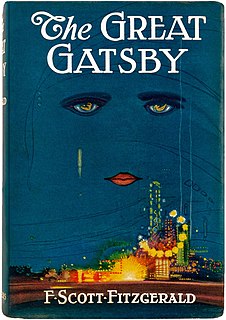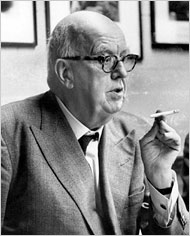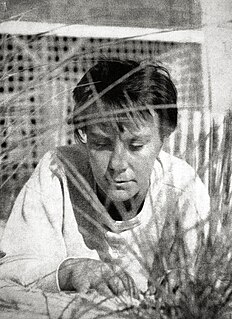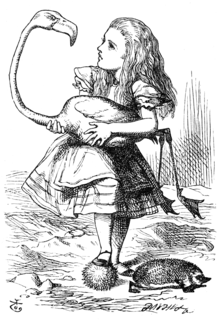
Second Generation is a 1964 novel by Raymond Williams, set in the 1960s. The contrasting worlds of the university and the factory, and individuals who try to find their place among contradictory forces.

Second Generation is a 1964 novel by Raymond Williams, set in the 1960s. The contrasting worlds of the university and the factory, and individuals who try to find their place among contradictory forces.
Harold Owen, his brother Gwyn, son Peter and wife Kate all experience the contrasts. The book is based on the actual situation in Oxford of the 1960s, where the ancient university was right next to Morris Motors, as it then was.

Franz Kafka was a German-speaking Bohemian novelist and short-story writer, widely regarded as one of the major figures of 20th-century literature. His work fuses elements of realism and the fantastic. It typically features isolated protagonists facing bizarre or surrealistic predicaments and incomprehensible socio-bureaucratic powers. It has been interpreted as exploring themes of alienation, existential anxiety, guilt, and absurdity. His best known works include the short story "The Metamorphosis" and novels The Trial and The Castle. The term Kafkaesque has entered English to describe situations like those found in his writing.

John Hoyer Updike was an American novelist, poet, short-story writer, art critic, and literary critic. One of only four writers to win the Pulitzer Prize for Fiction more than once, Updike published more than twenty novels, more than a dozen short-story collections, as well as poetry, art and literary criticism and children's books during his career.
Pop is a genre of popular music that originated in its modern form during the mid-1950s in the United States and the United Kingdom. The terms popular music and pop music are often used interchangeably, although the former describes all music that is popular and includes many disparate styles. During the 1950s and 1960s, pop music encompassed rock and roll and the youth-oriented styles it influenced. Rock and pop music remained roughly synonymous until the late 1960s, after which pop became associated with music that was more commercial, ephemeral, and accessible.

Starship Troopers is a military science fiction novel by American writer Robert A. Heinlein. Written in a few weeks in reaction to the US suspending nuclear tests, the story was first published as a two-part serial in The Magazine of Fantasy & Science Fiction as Starship Soldier, and published as a book by G. P. Putnam's Sons in December 1959.

The Great Gatsby is a 1925 novel by American writer F. Scott Fitzgerald. Set in the Jazz Age on Long Island, near New York City, the novel depicts first-person narrator Nick Carraway's interactions with mysterious millionaire Jay Gatsby and Gatsby's obsession to reunite with his former lover, Daisy Buchanan.

Charles Percy Snow, Baron Snow, was an English novelist and physical chemist who also served in several important positions in the British Civil Service and briefly in the UK government. He is best known for his series of novels known collectively as Strangers and Brothers, and for The Two Cultures, a 1959 lecture in which he laments the gulf between scientists and "literary intellectuals".

Lady Chatterley's Lover is the last novel, by English author D. H. Lawrence, which was first published privately in 1928, in Italy, and in 1929, in France. An unexpurgated edition was not published openly in the United Kingdom until 1960, when it was the subject of a watershed obscenity trial against the publisher Penguin Books, which won the case and quickly sold three million copies. The book was also banned for obscenity in the United States, Canada, Australia, India and Japan. The book soon became notorious for its story of the physical relationship between a working-class man and an upper-class woman, its explicit descriptions of sex and its use of then-unprintable four-letter words.

Nelle Harper Lee was an American novelist best known for her 1960 novel To Kill a Mockingbird. It won the 1961 Pulitzer Prize and has become a classic of modern American literature. Lee has received numerous accolades and honorary degrees, including the Presidential Medal of Freedom in 2007 which was awarded for her contribution to literature. She assisted her close friend Truman Capote in his research for the book In Cold Blood (1966). Capote was the basis for the character Dill Harris in To Kill a Mockingbird.

A paperback, also known as a softcover or softback, is a type of book characterized by a thick paper or paperboard cover, and often held together with glue rather than stitches or staples. In contrast, hardcover or hardback books are bound with cardboard covered with cloth, plastic, or leather. The pages on the inside of a paperback are made of paper.

An expatriate is a person residing in a country other than their native country. In common usage, the term often refers to educated professionals, skilled workers, or artists taking positions outside their home country, either independently or sent abroad by their employers. However, the term 'expatriate' is also used for retirees and others who have chosen to live outside their native country. Historically, it has also referred to exiles.
Metafiction is a form of fiction which emphasises its own constructedness in a way that continually reminds the audience to be aware they are reading or viewing a fictional work. Metafiction is self-conscious about language, literary form, and story-telling, and works of metafiction directly or indirectly draw attention to their status as artifacts. Metafiction is frequently used as a form of parody or a tool to undermine literary conventions and explore the relationship between literature and reality, life, and art.

Claude Simon was a French novelist, and the 1985 Nobel Laureate in Literature.

The Dangerous Summer is a nonfiction book by Ernest Hemingway published posthumously in 1985 and written in 1959 and 1960. The book describes the rivalry between bullfighters Luis Miguel Dominguín and his brother-in-law, Antonio Ordóñez, during the "dangerous summer" of 1959. It has been cited as Hemingway's last book.
In the arts, maximalism, a reaction against minimalism, is an aesthetic of excess. The philosophy can be summarized as "more is more", contrasting with the minimalist motto "less is more".

Playhouse 90 was an American television anthology drama series that aired on CBS from 1956 to 1960 for a total of 133 episodes. The show was produced at CBS Television City in Los Angeles, California. Since live anthology drama series of the mid-1950s usually were hour-long shows, the title highlighted the network's intention to present something unusual: a weekly series of hour-and-a-half-long dramas rather than 60-minute plays.
Contrastive analysis is the systematic study of a pair of languages with a view to identifying their structural differences and similarities. Historically it has been used to establish language genealogies.
Menna Patricia Humphreys Gallie was a Welsh novelist and translator.
The Gates of Paradise is a novel by Polish writer Jerzy Andrzejewski published in 1960. The novel consists of 40,000 words written in two sentences, with nearly no punctuation, making it an exercise in constrained writing. The second sentence contains only four words: "I szli całą noc".

Fiction is any creative work, chiefly any narrative work, portraying people, events, or places in ways that are imaginary, or not strictly based on history or fact. In its most narrow usage, fiction applies to written narratives in prose and often specifically novels, as well as novellas and short stories. More broadly, however, fiction has come to encompass imaginary narratives expressed in any medium, including not just writings but also live theatrical performances, films, television programs, radio dramas, comics, role-playing games, and video games.

A novel is a relatively long work of narrative fiction, typically written in prose and published as a book. The present English word for a long work of prose fiction derives from the Italian: novella for "new", "news", or "short story of something new", itself from the Latin: novella, a singular noun use of the neuter plural of novellus, diminutive of novus, meaning "new". Some novelists, including Nathaniel Hawthorne, Herman Melville, Ann Radcliffe, John Cowper Powys, preferred the term "romance" to describe their novels.